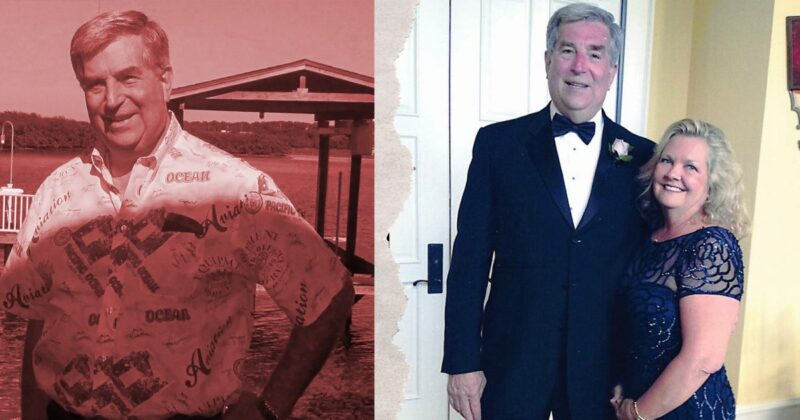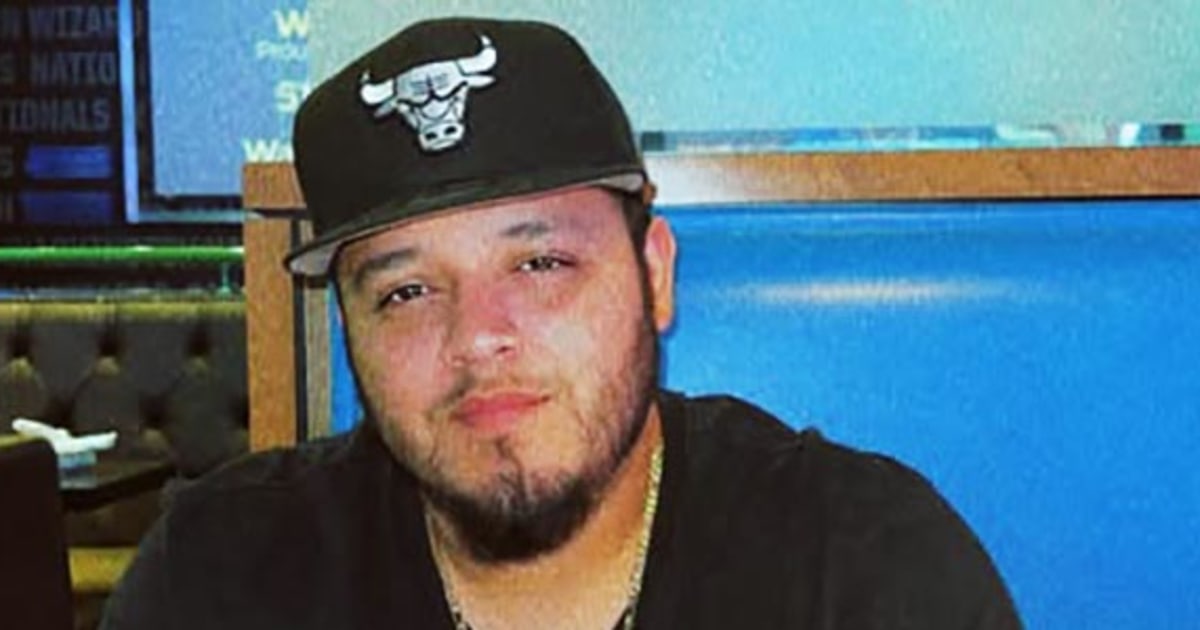For John Diebel, she’s the suspect who got away.
Diebel, a retired detective, spent more than a decade investigating the brutal murder of Steven Schwartz, a wealthy doctor whose 2014 death shook Florida’s Gulf coast. In his first interview about the case, Diebel recalled that the investigation was one of the most extensive of his nearly 50 years in law enforcement — one filled with unexpected turns and dead ends that led detectives far from the doctor’s sprawling mansion northeast of Tampa.
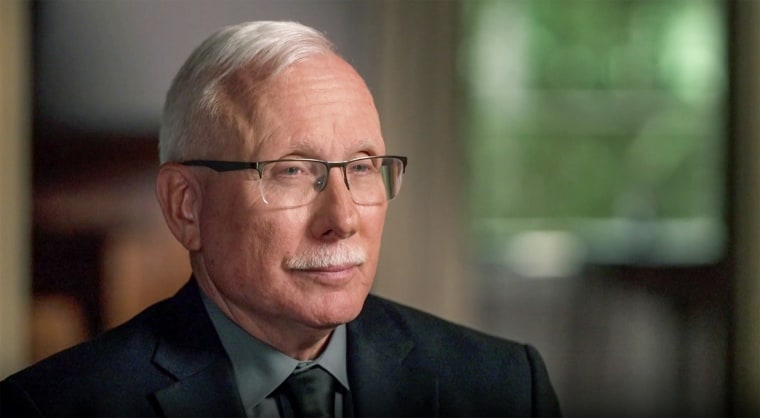
Yet in the end, Diebel’s investigation for the Tarpon Springs Police Department produced a single conviction for a crime far less serious than murder. And it did not yield criminal charges for a person who Diebel believes is responsible for the killing: Schwartz’s wife, Rebecca Schwartz.
“It’s like the one case where you didn’t get the suspect that you knew in your heart that she committed a murder,” Diebel told “Dateline.” “You just didn’t have enough for the state attorney’s office to go forward with prosecution.”
For more on the case, tune in to “The Death of Dr. Schwartz” on “Dateline” at 9 ET/8 CT tonight.
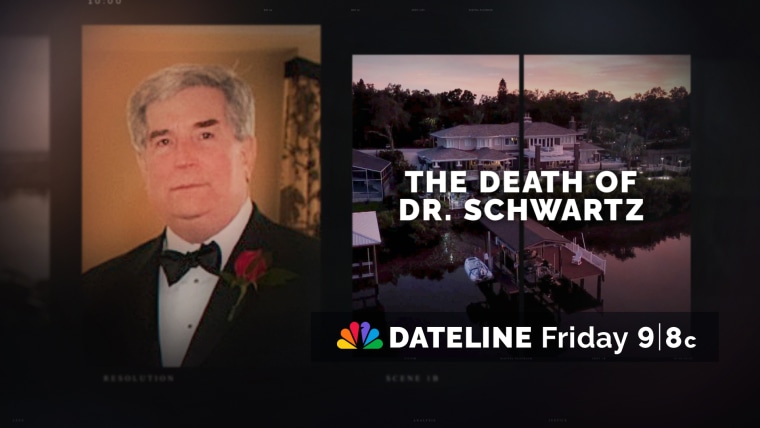
While Rebecca, 65, has never been criminally charged in the case, a jury in civil court — where the standard of evidence is lower than in criminal proceedings — found her liable this year for intentionally killing her husband or participating in his death. That decision, made in response to a wrongful death lawsuit filed by Steven’s family, included a judgment that required Rebecca to pay the doctor’s family nearly $200 million in damages.
Lawyers for Steven’s family accused her of killing him over a possible divorce — a move that would have cut her off from the fortune he’d made as a doctor specializing in kidney disease.

After Steven’s death, Rebecca — who earlier in life pleaded guilty to embezzling more than $7,000 from a Mothers Against Drunk Driving chapter that she led — became the beneficiary of an estate that an attorney for Steven’s family estimated at more than $30 million. She moved the money into hard-to-track limited liability companies, according to the family’s legal team. To date, the lawyers have frozen roughly $6 million to $10 million of her assets, one of the attorneys, Wil Florin, told “Dateline.”
Rebecca declined to speak to “Dateline.” In a deposition in the civil case, she invoked her right against self-incrimination and declined to answer when attorneys for Steven’s family pressed her about whether she participated in his death. She did the same when she was asked about her previous conviction. In a separate deposition last year, she said she was worth $10,000 and had transferred almost everything she owned into trusts controlled by her two sons.
Her attorney, Rohom Khonsari, said there was no evidence supporting the claim that Steven wanted to divorce her. Nor was there any physical evidence linking her to the crime, Khonsari said.
A staged burglary and a dead body
On the evening of May 28, 2014, Rebecca dialed 911 and reported a robbery at the family’s 8,000-square-foot home in Tarpon Springs, northeast of Tampa. Jewelry, cash and her husband’s watches were gone, according to audio of the 911 call, and she told the dispatcher she hadn’t seen Steven since that morning, when she left at 8:30 and he was in bed reading a newspaper.
“He’s a physician, so I don’t know where he is, actually,” she said. “One of the hospitals, I assume.”

As investigators searched the house, they found watch boxes scattered across a bedroom floor and drawers yanked from cabinets. At the bottom of a set of stairs, they found Steven’s body in a pool of blood, Diebel recalled. He was 74.
He’d been shot twice — once in the head, once in the neck — with what Diebel believed was a small-caliber gun. He had a large laceration across his neck, Diebel said, and an autopsy showed his spine had been fractured — an injury he appeared to have sustained during a fall down the stairs.
Investigators discovered that a crucial part of the home’s elaborate security system — a DVR — was missing, as was a large knife in a butcher block in the kitchen, Diebel said. Neither would ever be found. Nor would authorities find the gun used to shoot him.
Diebel came to believe the burglary scene was staged. While the drawers had been pulled out, he said, it didn’t appear that anyone had actually rifled through them. And the jewelry and watch boxes looked like they’d just been dropped on the floor. The effort, he said, seemed designed to make the crime look like a “burglary gone bad.”
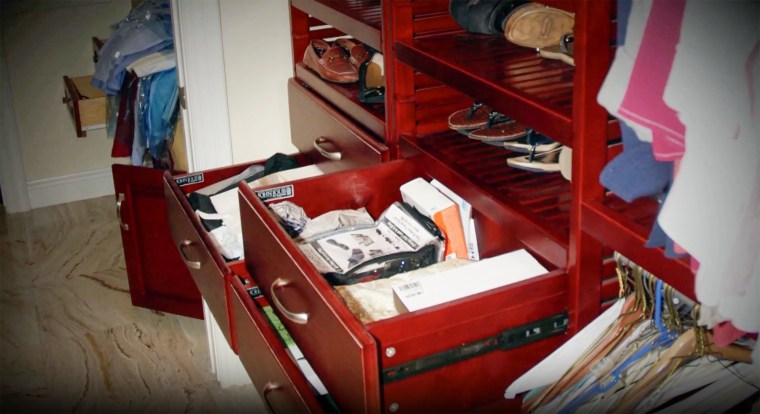
Diebel also came to believe that someone close to the Schwartzes was probably responsible for the doctor’s death. He based that suspicion on the location of the missing recording equipment — it was hidden in a closet, above the garage — and on the family’s two large dogs: Rebecca told police they’d been locked all day inside the same bedroom that had been burglarized. Those clues led Diebel to believe the person was familiar with the home’s layout and knew the pets.
Shortly after the death, investigators interviewed Rebecca, who called her husband her “best bud” — they’d been married for four years but a couple for far longer — and provided an account of her whereabouts on May 28, a video of the interview shows. That account included receipts, Diebel said. When police shared their theory about who was likely to have been responsible for her husband’s killing, she responded: “You think you can find who did this?”
An investigator responded in the affirmative.
Fingerprints lifted from the security system and elsewhere at the crime scene provided what initially seemed like a promising lead. They matched those of Rebecca’s oldest son from a previous marriage, Diebel said, prompting Diebel to travel with a team of investigators to a small town north of Madison, Wisconsin, where the son owned a Verizon shop.
They showed up at his workplace unannounced, Diebel said, and questioned him about where he’d been on May 28. It turned out he’d been nowhere near Tarpon Springs.
“He had gone to the doctor’s with his wife,” Diebel said. “She was pregnant at the time.”
Diebel also ruled out a startling revelation from the doctor’s past that emerged after his death. As a 21-year-old college student in New Mexico, he robbed a doctor of $400 — then fatally shot him. Steven pleaded guilty to murder and was sentenced to life in prison but granted a full pardon a decade later.
While shocking — Steven had kept the crime a secret from his children — Diebel believed it had no connection to his death. It had happened in 1961, more than a half-century before, Diebel said, and the doctor had transformed into a model citizen
“This was a completely different man,” Diebel said.
Finally, a breakthrough in the case
Nearly a year passed before DNA delivered the case’s first breakthrough. The samples were taken from two spots on Steven’s clothes — inside a pocket where he usually kept a wad of cash, Diebel said, and a section of his shirt that appeared crumpled.
It wasn’t the strongest DNA match — Diebel said there had been significant contamination at the scene because of the amount of blood — but the analysis led to an unexpected person: Leo Stragaj, a man who’d worked for the Schwartzes for years doing remodeling and property maintenance.
Two weeks after the killing, Stragaj, 48, provided authorities with the genetic sample they used to compare with the DNA collected at the scene. In a recorded interview obtained by “Dateline,” he told authorities that he had no idea who was behind Steven’s death but wanted to help however he could.
“That guy took care of my everything,” said Stragaj, an Albanian national who first came to the United States in 2000. “He supported my family in Albania.”
Stragaj provided an account of his whereabouts on May 28 — he said he’d been working on a house all day — and authorities verified it, Diebel said. But after they obtained the DNA sample, police arrested him on a first-degree murder charge and confronted him with the new finding. He initially disputed the evidence, saying that he was being framed and that there was no way it was his, according to a video of the interview.
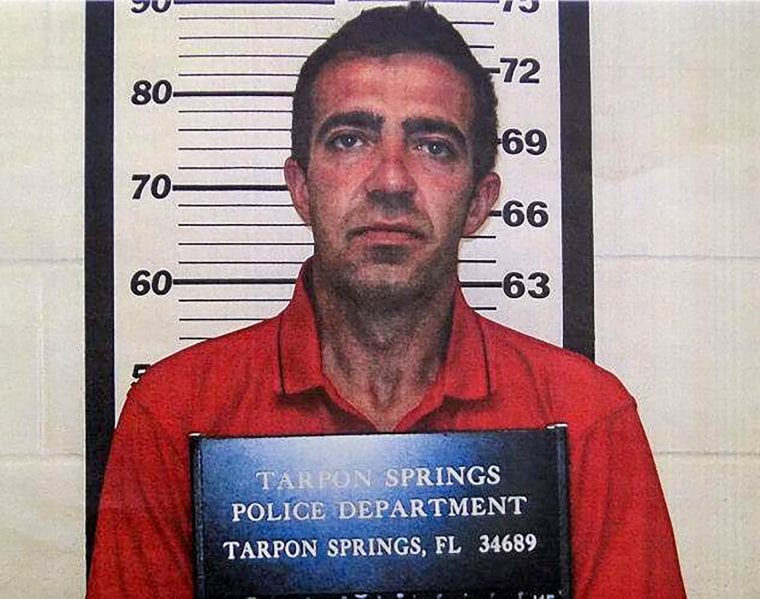
But after an hour and a half, Stragaj provided a far different account. In the interview, he said that Rebecca had asked him to stop by their house early May 28 to pick up her purse and that when he did, he found Steven’s body in a pool of blood.
Stragaj said he grabbed the doctor and shook him — “just to see if he’s OK,” he said in the interview. He retrieved Rebecca’s bag, which he said contained jewelry boxes and a knife, and left.
Upon returning the purse, he started screaming at Rebecca and demanding to know why she killed her husband, Stragaj told “Dateline.” She at first said nothing, then responded, “I know you know why I did it,” Stragaj said. (Stragaj provided a similar account during a deposition in the civil case when he was questioned by an attorney for Steven’s family.)
In an interview with “Dateline,” Stragaj said he didn’t go to the police for two reasons: He feared being deported and worried Rebecca wouldn’t pay him the tens of thousands of dollars he said she owed him from an investment they’d made together.
Not calling the police that day, he said, was the biggest mistake of his life.
In 2021, after six years in the Pinellas County Jail awaiting trial, Stragaj accepted a deal from prosecutors — a guilty plea to a lower-level felony, accessory after the fact. A few months later, he was deported to Albania.
Detective’s lingering doubts
Diebel said he doesn’t believe Stragaj stumbled onto the murder scene. He believes Stragaj was directly involved in the doctor’s killing and could still answer a series of unresolved questions, including what happened to the missing DVR.
In the “Dateline” interview, Stragaj maintained his innocence and said he had nothing to do with killing Steven.
Because of Stragaj’s repeated lies, Diebel said, his account of what happened on May 28 wasn’t considered credible evidence against Rebecca. And in the decade-plus that he spent investigating the murder, Diebel said, he uncovered no evidence that would hold up in a criminal trial.
Diebel said that before he retired this year, he tried everything he could — and had other agencies review his work to see whether there was something he missed. More witnesses came forward, he said, but nothing they provided was enough.
Even though he’d never been able to prove it, Diebel believed a theory of the killing that was similar to that presented in the civil case — that Steven was murdered after he told his wife he planned to end their relationship.
Diebel said he was glad there had been some measure of justice for Steven’s family with the civil judgment. And even though the investigation he shepherded for years was officially closed weeks after the jury delivered that judgment, he was hopeful new evidence could someday resurrect the criminal probe.
“I just would encourage anybody if you know anything, no matter how small, if you have not talked with a detective or the police department about this, please come forward,” he said. “’Cause you never know what information that you have might be the link that we need to put things together.”

